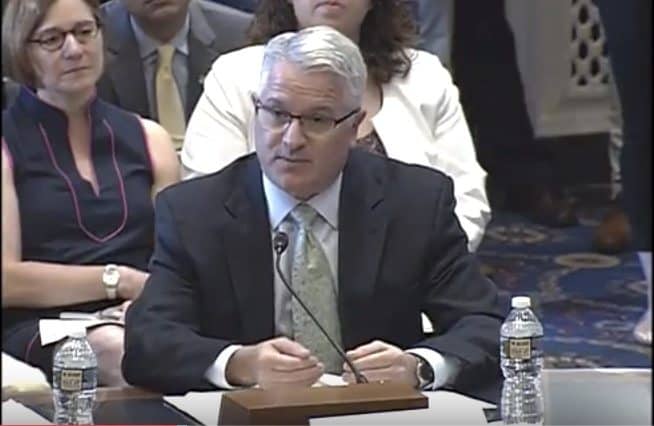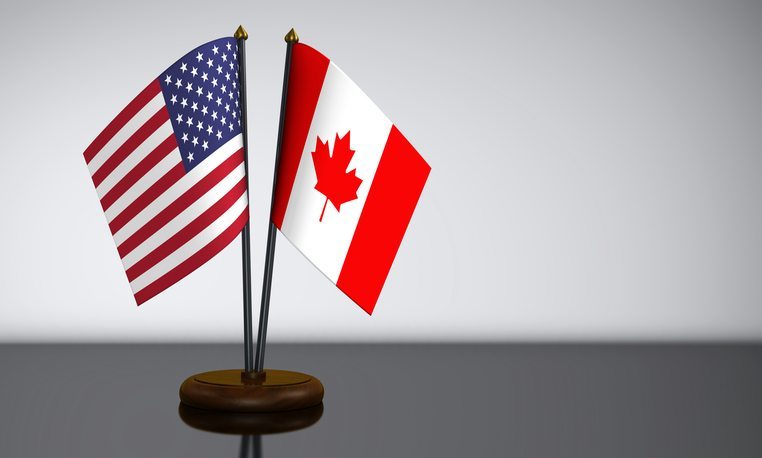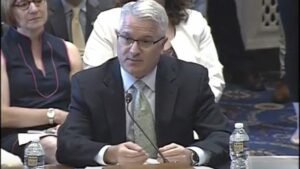The American Seed Trade Association kicked off its new Policy and Leadership Development Conference this week by welcoming more than 200 attendees to Washington, D.C.
During the first lightening talk (a short, 15-minute session), President and CEO Andy LaVigne greeted attendees and talked about the political lay of the land and the importance of being an advocate for the seed industry.
Just as you work to maintain relationships with your customers and seed growers, we work here to maintain relationships with those from Capitol Hill and from the administration, he said.
Like any landscape, you’ve got to design it, maintain it and take care of it to keep it going. If you don’t, it falls apart pretty quickly, and the political landscape is no different, LaVigne explained.
He shared that those in the seed industry and the ASTA team have been hard at work to develop and maintain relationships with those at the U.S. Department of Agriculture, the Environmental Protection Agency, the Office of the United States Trade Representative and many more. Those in attendance are hearing about how ASTA works across the board to help facilitate trade, harmonize rules and regulations at the international level, and advance innovation and sustainability efforts.
“More people know about ASTA today than I think ever before,” LaVigne said. “We have become such a strong resource across the divide here in Washington, and across the country.”
Becoming a go-to resource means making yourself available and heard.
“We’ve got to be at the table,” LaVigne said, “and we’ve got to be at the table all the time.”
This couldn’t be truer than with the trade issues impacting the markets today.
“Those of you in the soybean and corn business can see how concerned your customers are about losing potential markets: Mexico, Canada, China,” he said.

Other important topics include plant breeding innovation and gene editing, the reauthorization of the farm bill, seed treatments, labor and market disruptors.
LaVigne said participants will hear a lot about plant breeding innovation and gene editing this week.
“We’ve got to get it right; we can’t miss this opportunity,” he said. “It’s going to cost us time and money, but we’ve got to invest and do it.”
Regarding the farm bill, the Senate Agriculture Committee is expected to take it up this week, just as ASTA members are doing “Storm the Hill” visits.
“If the Senate gets it right — and there’s a few things in there we need — then it will go to conference before August, and hopefully [we] have something on the House and Senate floors for passage right after August,” he said. “We don’t want to get too close to the election this year because it’s going to be ugly come October and November.”
Then there is the issue of labor.
“I don’t care where you are in agriculture today, labor is an issue,” he said. “We’ve got to be there at the table talking about what it means to our industry and how to go forward.”
Quoting Webster’s dictionary, LaVigne said: “Advocacy means public support for, or recommendation of, a particular cause or policy. That’s what you are here for. What’s that particular cause or policy that impacts your business?
“Once you leave here, don’t just check out. As former U.S. Speaker of the House Tip O’Neill said, ‘all politics is local.'”
LaVigne said you’ve got to set yourself apart from all the other groups doing the exact same thing, and that happens at the local level.
“When you get back home, call your representative and let them know you just met with your congressman in Washington,” he said. “Let them know you’re there and that you are a resource. Those kinds of things are absolutely essential.
“I challenge you all to be an advocate. Be an advocate for what you believe in.”












